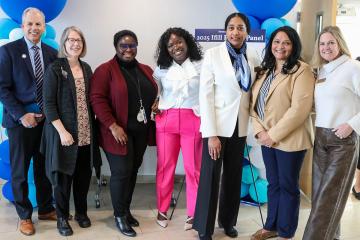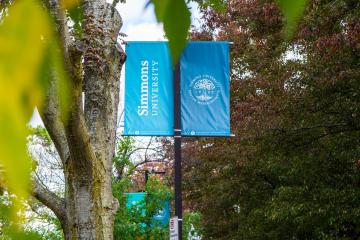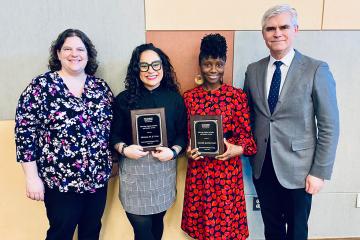Department of Race, Gender, and Sexuality Studies
The Department of Race, Gender, and Sexuality Studies provides an institutional home for interdisciplinary inquiry at Simmons University. It houses six allied undergraduate programs in Africana Studies, Asian Studies, Law and Justice, Migration Studies, Sociology, and Women's, Gender, and Sexuality Studies, as well as a Master's program in Gender and Cultural Studies.
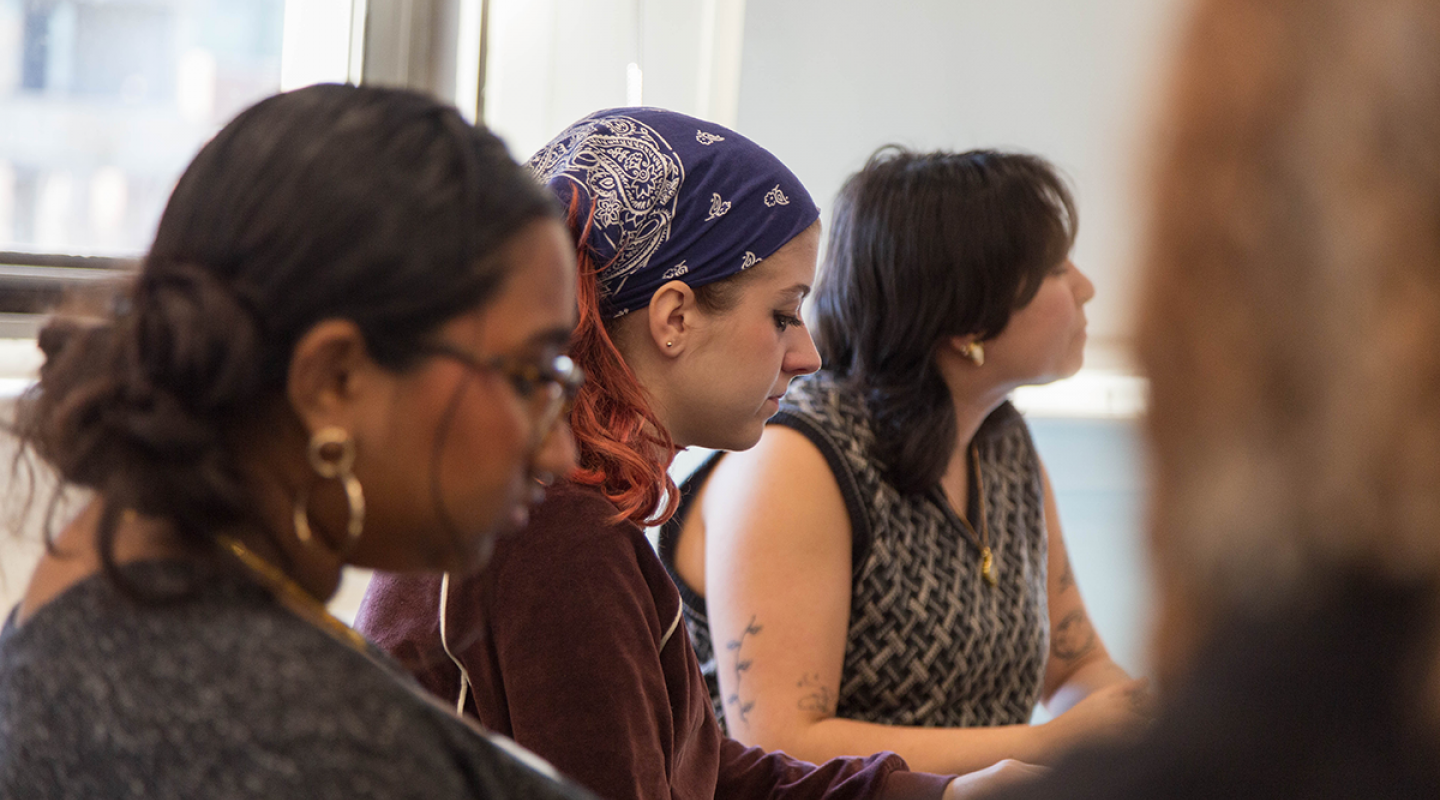
Studying Race, Gender, and Sexuality Studies at Simmons
The Department of Race, Gender, and Sexuality Studies provides a rigorous education in the interdisciplinary study of identity, power, and resistance. Our curriculum will prepare you to think critically and intersectionally about race, gender, and sexuality (among other markers of difference), to challenge oppression and inequalities, and to become an agent of social change.
Learning Outcomes
Students in the Africana Studies program will…
- Content: Analyze major historical, political, social, economic, and cultural developments and institutions of people of African descent, including diverse communities of Black people in the United States and abroad.
- Knowledge of the Field: Demonstrate a broad understanding of the field, its intellectual and institutional history, its multidisciplinary / interdisciplinary nature, its core concepts and theoretical frameworks, as well as its body of literature and key historiographical debates.
- Analytical Framework: Identify the foundations and workings of racism, colonialism, classism, heteropatriarchy, and other systems of oppression, as well as the ability to effectively employ the theoretical concept of intersectionality.
- Skills & Methods: Demonstrate critical thinking and analysis, research, and writing skills, as well as evaluate and employ the field’s major methodological approaches and schools of thought.
- Relevance & Applicability in a Diverse World: Develop cultural competence and debate current sociopolitical issues and initiatives that are relevant to people of African descent.
- Global Citizenship & Community Engagement: Apply knowledge to research and develop solutions to challenge systemic oppressions and take action to create social change in local communities and the world at large.
At the successful completion of the program in Asian Studies, students will:
- Form a deeper understanding of the history, politics, and culture of East and Southeast Asia
- Gain experience in East and Southeast Asia through language training and Study Abroad experiences
- Understand the impact of global politics in the region
The Minor in Migration Studies has three main learning and professional outcomes:
- Thanks to the required “Introduction to Migration Studies” course and to the range of electives, we expect all students to walk away from the Minor with a solid foundation in the growing interdisciplinary field of migration studies. In addition to enhancing their global awareness, this program will cover key disciplinary and methodological approaches to migration and immigration.
- Because students will largely craft their own program of study, drawing from a rich and interdisciplinary array of courses, students will develop deep content knowledge in areas of interest to them. While one student may concentrate heavily on questions related to law, policy, and international relations, another student may graduate with insights about representations of the migratory experience in art and literature, as well as the ways local groups use the arts to elaborate upon their identities and strengthen communities.
- Finally, by formalizing experiential learning in partnership with our local communities, the Migration Minor will help prepare students for a variety of professions. Students will gain essential hands-on experience for future careers in nongovernmental organizations, legal services, ESL programs, healthcare service, cultural centers, community organizations, workers collectives, and more.
Students in Women’s, Gender, and Sexuality Studies will...
I. Content: Analyze major historical, political, social, economic, and cultural developments related to issues of gender and sexuality in the United States and globally with a focus on the experiences and perspectives of women, nonbinary people, transgender people, and other marginalized groups such as those who identify as LGBTQIA+ or people with disabilities.
II. Knowledge of the Field: Demonstrate a broad understanding of the intersecting fields of Gender and Sexuality Studies, their intellectual and institutional histories, their multidisciplinary / interdisciplinary nature, their core concepts and theoretical frameworks, as well as their bodies of literature and key historiographical debates.
III. Analytical Framework: Identify how the social constructions of gender and sexuality are created, maintained, and challenged, how they are shaped by heteropatriarchy, sexism, homophobia, transphobia, and related systems of oppression such as racism, colonialism, classism, ableism, as well as effectively employ the theoretical concept of intersectionality.
IV. Skills & Methods: Demonstrate critical thinking and analysis, research, and writing skills, as well as evaluate and employ the field’s major methodological approaches and schools of thought.
V. Relevance & Applicability in a Diverse World: Develop cultural competence and leadership skills and debate current sociopolitical issues and initiatives that are relevant to people of diverse genders and sexual orientations, particularly to women, queer people, transgender and nonbinary people, disabled people, and other marginalized groups.
VI. Global Citizenship & Community Engagement: Apply knowledge to research and develop solutions to challenge systemic oppressions and take action to create social change in local communities and the world at large.
By the time a student has completed the GCS program, they will have the following competencies.
Intellectual Engagement
- Clearly articulate the core concepts, main themes, relevant literatures, and central figures in the fields of intersectional feminist studies and critical race studies
- Evaluate, compare, and critique theories and methodologies of gender, race, sexuality, class, ability, and culture
- Situate current realities of gender, sexuality, race, ability, class, and culture within broader, intersectional, historical and geopolitical contexts
- Do graduate-level research, including articulating the main methodologies in students’ chosen fields and then applying those practices in their own work
Public Engagement
- Locate themselves in key debates within the fields of feminist studies and critical race studies, taking a stand on issues and problems and offering solutions
- Effectively communicate and publicize research-based, action-oriented inquiry
- Engage in respectful, informed dialogue in public settings
Professional Engagement
- Evidence in-depth understandings of a specific topic aligned with their future professional endeavors
- Creatively problem solve, and communicate those solutions to wider publics using various mediums (writing, speaking, podcasts, videos, performances, workshops)
- Produce convincing and directed articulations that illustrate the relationship between their master’s work and desired professional outcomes
Sociology learning outcomes:
- Understand social issues from a grounded and critical perspective.
- Examine social justice as an intellectual and activist pursuit.
- Apply research and theoretical skills toward social equity and leadership
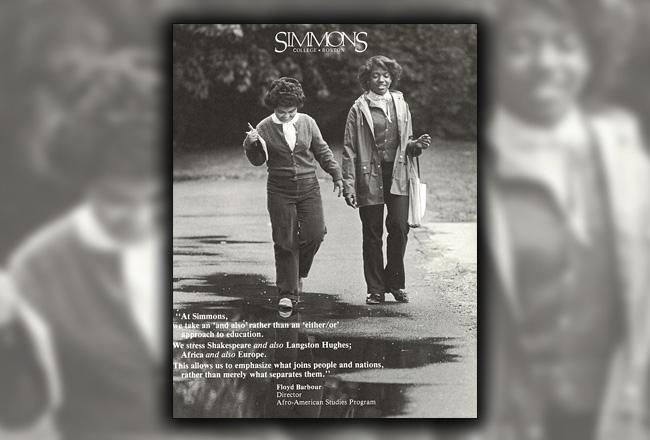
Celebrating 50 Years of Africana Studies at Simmons
Learn about the history of Africana Studies, the work of its students and recent graduates, and explore oral histories of Black alums from the 1970s and 1980s.
Race, Gender, and Sexuality Studies Faculty
The allied programs in the Department of Race, Gender, and Sexuality Studies also include affiliated faculty from other departments.
Chair
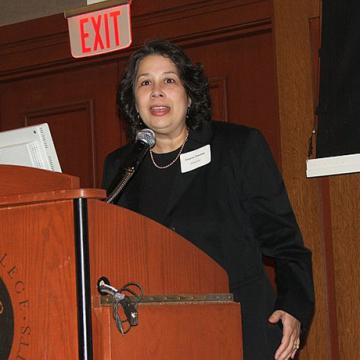
Dawna Thomas
Professor and Chair of the Department of Race, Gender, and Sexuality Studies
Our Faculty and Affiliates
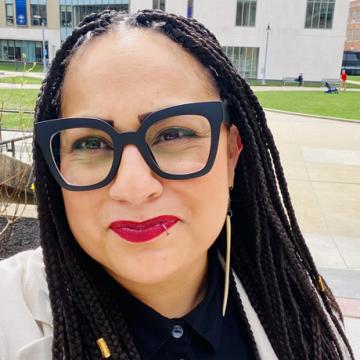
Tatiana M.F. Cruz
Assistant Professor and Interdisciplinary Program Director of Africana Studies and Women's, Gender, and Sexuality Studies
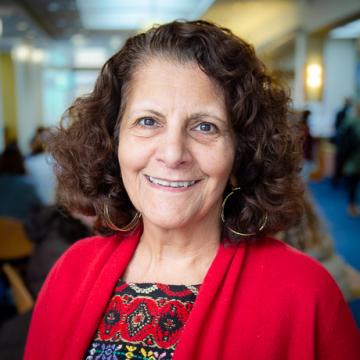
Diane Grossman
Professor

Kelly Hager
Associate Provost, Curriculum, Assessment, and Accreditation
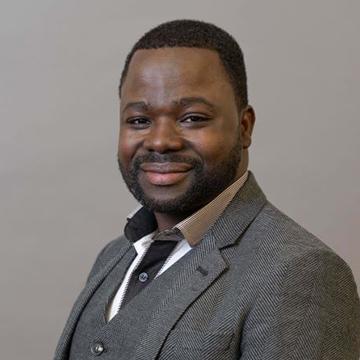
Foster Kamanga
Assistant Teaching Professor
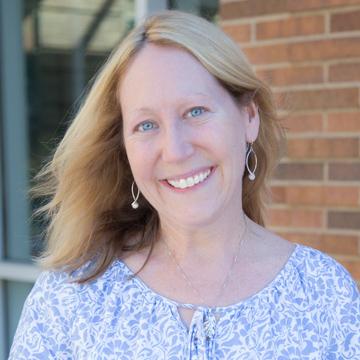
Suzanne Leonard
Professor and Program Director for Gender and Cultural Studies
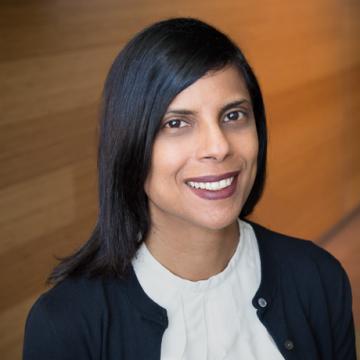
Saher Selod
Associate Professor
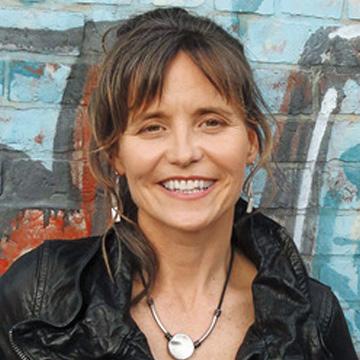
Becky Thompson
Professor
Department of Race, Gender, and Sexuality Studies in the News
Contact Us
Department of Race, Gender, and Sexuality Studies
The Department of Race, Gender, and Sexuality Studies administers programs that express Simmons's commitment to understanding the power of culture to shape identities, lived experiences, inequities, and opportunities. The programs encourage work across disciplines and draw on a range of faculty expertise from across the University.
Visit Simmons
What type of student are you?
Apply to Simmons
What type of student are you?
Request Info
What type of student are you?

